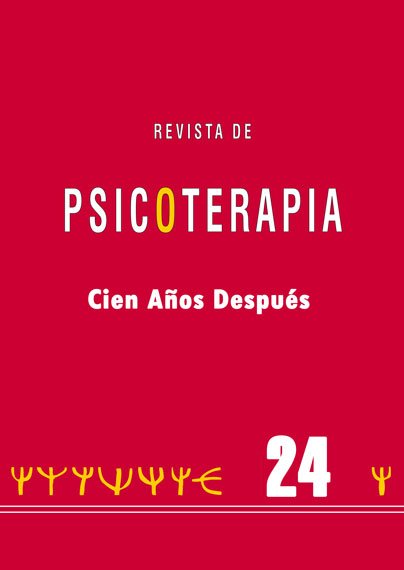Cien años de psicoterapia: ¿el porvenir de una ilusión o un porvenir ilusorio?
DOI:
https://doi.org/10.33898/rdp.v6i24.1090Palabras clave:
psicoterapia, postmodernidadResumen
Este artículo aborda los retos que plantea la denominada condición posmoderna contemporánea a la psicoterapia como ámbito científico aplicado desde la perspectiva de sus cien años de historia. Tras una breve revisión de los principales modelos psicoterapéuticos desde una perspectiva estilísitica y sociocultural, se presenta un intento de definición del término posmodernidad así como una advertencia ante las posibles implicaciones ambivalentes que puede llegar a plantear la noción de una psicoterapia posmoderna. Finalmente, desde una perspectiva afirmativa, se ofrece un esbozo de lo que podrían ser los retos más significativos que la posmodernidad plantea a la psicoterapia vista desde sus cien años de historia como disciplina.
Descargas
Descargas
Publicado
Cómo citar
Número
Sección
Licencia
Los autores/as que publiquen en esta revista aceptan las siguientes condiciones:
- Los autores/as conservan los derechos de autor y ceden a la revista el derecho de la primera publicación, con el trabajo registrado con la Creative Commons CC-BY-NC 4.0 Internacional, que permite a terceros citar el texto y usarlo sin alterarlo y sin beneficio económico, siempre que mencionen la autoría del trabajo y la primera publicación en esta revista.
- Los autores/as pueden realizar otros acuerdos contractuales independientes y adicionales para la distribución no exclusiva de la versión del artículo publicado en esta revista (p. ej., incluirlo en un repositorio institucional o publicarlo en un libro), siempre que indiquen claramente que el trabajo se publicó por primera vez en esta revista.
- Las opiniones expresadas en los trabajos son responsabilidad única de los/as autores/as, no reflejando en ningún caso las opiniones o políticas científicas de la revista.














